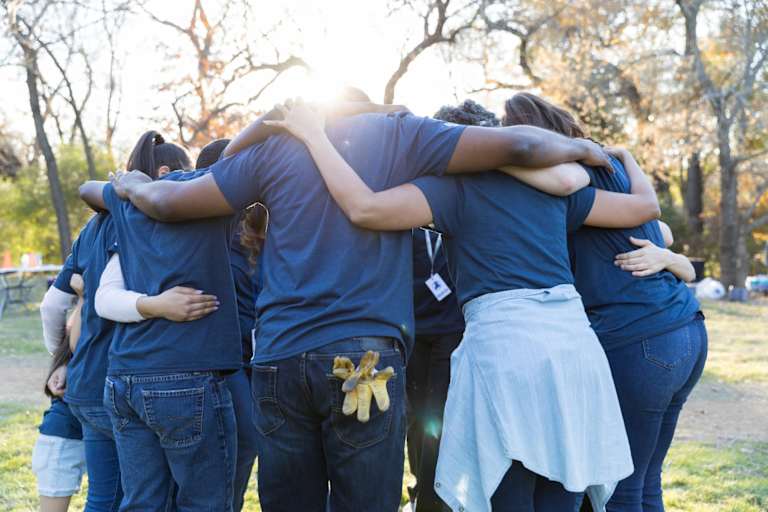MSW vs. LCSW: What’s the Difference?
Social work is a great field to consider if you’re passionate about making a difference in people’s lives. As you explore your options, you’ll encounter many terms and initialisms, such as BSW, MSW, LCSW, and LMSW.
While these may seem confusing at first, it’s important to understand what they mean — and how they relate to one another. When it comes to MSW and LCSW specifically, the two refer to different things: An MSW is a graduate degree, whereas an LCSW is a job title.
Keep reading to learn more about the key differences between MSW vs. LCSW and what they mean for you.
MSW vs. LCSW: Basic Overview
MSW stands for master of social work, while LCSW is short for licensed clinical social worker.
In other words, an MSW is an academic credential — specifically a type of graduate degree — whereas an LCSW is a type of social worker.
Many people who earn an MSW choose to pursue licensure and become LCSWs. An MSW is usually the minimum degree requirement to become an LCSW.
MSW
- Stands for “master of social work”
- Type of master’s degree
- Typically accredited by the Council on Social Work Education (CSWE)
- Minimum requirement for clinical social worker roles
LCSW
- Stands for “licensed clinical social worker”
- Type of social worker
- Common career path for social work graduates
- Must have an MSW to become an LCSW
Featured Online MSW Programs
Learn about start dates, transferring credits, availability of financial aid, and more by contacting the universities below.
What Is an MSW?
An MSW is a two-year graduate degree. In an MSW program, you’ll study upper-level coursework in key social work topics such as ethics, human behavior, social welfare policy, and intervention strategies.
Many MSW students have a bachelor of social work (BSW), though it is not a requirement to enter an MSW program.
An MSW can qualify you for many social work jobs, though it is not a license and therefore does not allow you to practice clinical social work independently. In order to practice clinical social work, you must meet your state’s licensure requirements for becoming an LCSW.
Most MSW programs are accredited by the Council on Social Work Education (CSWE).
MSW Requirements
Bachelor’s in social work, psychology, counseling, human services, or a related field
Around 60 credits of graduate-level social work coursework
At least 900 hours of supervised field instruction
MSW Salary and Jobs
With an MSW, you can choose from among many types of social work roles.
By earning a state license, you can qualify for even more social work jobs — and potentially raise your social worker salary.
| Job | Annual Salary | Job Growth Rate (2022-2032) | Duties |
|---|---|---|---|
| Case Managers | $45,940 (Average, July 2024) | 9% (all social and community services managers) | Connect clients to community resources while fostering their autonomy and growth |
| Child, Family, and School Social Workers | $53,940 (Median, May 2023) | 5% | Advocate for children, students, and their families; coordinate care; and strengthen communities by promoting resources |
| Family Therapists | $58,510 (Median, May 2023) | 15% | Provide counseling and support to families with the goal of improving communication, social skills, and family dynamics |
| Healthcare Social Workers | $62,940 (Median, May 2023) | 10% | Help patients understand medical diagnoses, connect them to community resources, and provide emotional support |
| Psychotherapists | $64,590 (Average, July 2024) | N/A | Provide therapy to individuals, families, and/or groups, and diagnose and develop treatment plans |
What Is an LCSW?
An LCSW is a type of social worker who holds state licensure, allowing them to practice clinical work without supervision. LCSWs can assess, diagnose, and treat individuals, families, and groups.
Many MSW graduates go on to become LCSWs.
The Association of Social Work Boards (ASWB) regulates social work licensing. Since licensure requirements vary by state, it’s important you consult ASWB for state-specific information.
LCSW Requirements
MSW from a CSWE-accredited program
At least 3,000 hours of fieldwork under a qualified supervisor
Pass a state licensing exam
Complete all licensure paperwork
LCSW Salary
According to Payscale, LCSWs earn an average base salary of $66,690 as of July 2024.
LCSW salaries can vary greatly depending on factors like your state, years of experience, and other credentials. Payscale data shows that LCSWs with over two decades of experience make around $74,000 on average per year.
Frequently Asked Questions About LCSW vs. MSW
You do not need to have a BSW to get an MSW. That said, having one might help you earn your MSW degree faster.
If you have a BSW, you could enter an MSW program with advanced standing, which would allow you to earn your MSW in one year instead of two.
Regardless, most MSW programs accept applicants with other bachelor’s degrees in areas like psychology, sociology, and human services.





